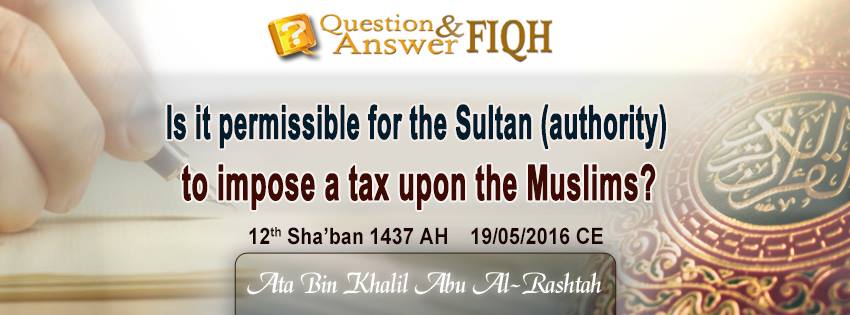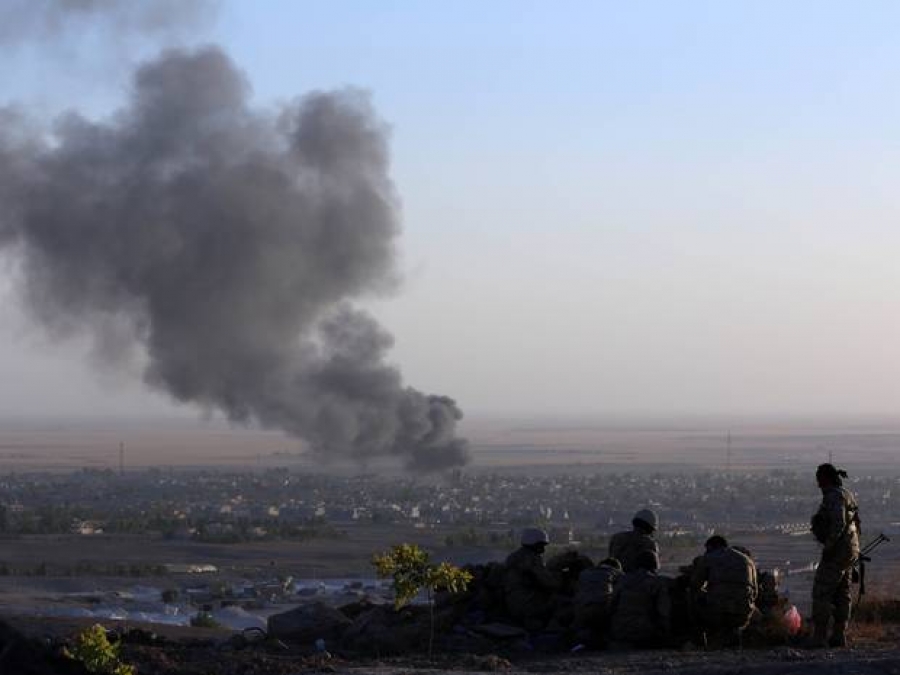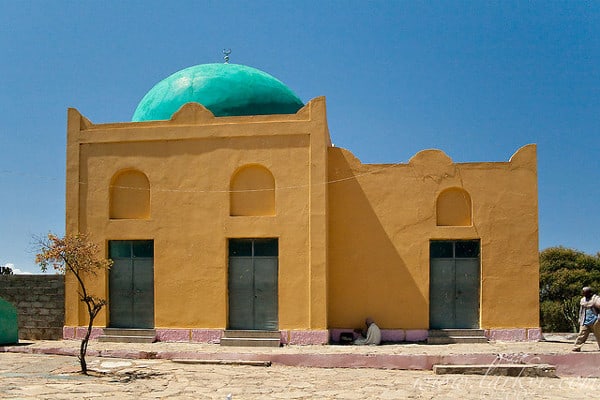We present here an answer from the Hizb’s Ameer, Sheikh Ata Abu Al Rashta, on the question of taxation under the Islamic system of governance.
Question:
As-Salaamu Alaikum Wa Rahmatullah Wa Barakaatuhu, May Allah allow you to persevere. I have a question that I hope that you can answer.
It is known that “taxes” are Muharramah (prohibited) in Islam. So how can the State treat the deficit particularly when there does not exist today At-Tawzheef, al-Ushoor and Al-Kharaaj.
From Khalid Aali Yaseen.
Answer:
Wa Alaikum Assalaam Wa Rahmatullah Wa Barakaatuhu,
It appears there is some confusion in this question in respect to the subject area of the question. This is because you said: “Taxes are Muharram (prohibited) in Islam”. That is correct in its generality but is to be further specified in specific cases.
Similarly, you say: “That there is no ‘Ushoor and Kharaaj today” while it is known that the land of Muslims is either ‘Ushriyah or Kharaajiyah, and that they are (both) present.
You have (also) mentioned: “At-Tawzheef, Al-’Ushoor and Al-Kharaaj” whilst the word ‘At-Tawzheef’ here has no place (or context) for it.
In any case, I will provide the details of this subject area so that the answer is clear and so that there is no ambiguity in it, nor vagueness, Insha Allah.
1 – The Shar’a has forbidden the Sultan (authority) to impose a tax upon the Muslims based upon an order issued from him according merely to what he wishes. He ﷺ said:
«لا يَدْخُلُ الْجَنَّةَ صَاحِبُ مَكْسٍ»
“One who wrongfully takes an extra tax (sahib maks) will not enter Paradise” [collected by Ahmad and classified as Saheeh by Az-Zain and Al-Haakim]
The ‘Maks’ is the tax (customs) that is taken from traders upon the borders of the lands; however, the prohibition includes every tax due to the statement of the Messenger ﷺ in the Hadeeth that has been agreed upon and related from Abu Bakrah:
«إِنَّ دِمَاءَكُمْ وَأَمْوَالَكُمْ وَأَعْرَاضَكُمْ عَلَيْكُمْ حَرَامٌ كَحُرْمَةِ يَوْمِكُمْ هَذَا فِي بَلَدِكُمْ هَذَا فِي شَهْرِكُمْ هَذَا…»
“Your blood, your properties and your honour are Haraam for you (to take from each other) like the inviolability of this day of yours in this land of yours in this month of yours…”.
It is ‘Aamm (general) including the Khalifah/Sultan just as it encompasses all of the people. It is therefore not permissible for the Khalifah/Sultan to impose a tax in order to spend from it; rather, he is to spend from the Bait ul-Maal (State Treasury).
2 – There are however cases or circumstances in which the Shar’a has made an exception from the general prevention of imposing taxes.
If what is in the Bait ul-Maal is not sufficient to spend upon, the spending (and its associated requirement to collect funds) transfers from the Bait ul-Maal to the Muslims. In this case a tax is imposed upon the wealthy in accordance to the amount of Nafaqah (spending) that is obligatory to meet those needs. This is done without any increase (above the need) and the collected funds are allocated in the places that they are needed in. The tax in this situation is not based upon the command of the Khalifah’s desire and according to his wishes; rather, it is based upon Allah’s commanding of it while the Khalifah/Sultan only implements the command that Allah has commanded of him.
Thus, if there are no funds in the Bait ul-Maal, or it has run out of funds, or it doesn’t have sufficient funds to meet expenditures, the Khalifah/Sultan would impose taxes upon the wealthy in accordance to the amount of those expenditures according to the Islamic rulings. It is not Haraam in this circumstance or situation.
3 – From what has been mentioned, it is clear that in order for it to be permissible for the tax to be imposed for a particular case, the following conditions have to be realised (or met):
– That sufficient funds do not exist within the Bait ul-Maal to spend upon this need.
– That a Shar’i text has come indicating that the expenditure in this case or situation is obligatory upon the Khalifah/Sultan.
– That the imposed tax does not exceed the amount of expenditure required for that need.
– That it is not imposed except upon the wealthy alone; that is, those who have a surplus above their basic (or fundamental) needs and their complimentary needs as measured by their standard of living (Bil-Ma’roof).
4 – Consequently, the tax is not imposed in Islam except in accordance to the above mentioned conditions i.e. that the Shar’a has brought a text indicating that the expenditure in a particular case is obligatory not just upon the Bait ul-Maal but rather upon the Muslims generally.
For example, the Nafaqah (spending) upon the Fuqaraa’ (poor): If the Bait ul-Maal is not sufficient to meet the needs of the Fuqaraa’, then a tax is imposed in accordance to the amount required to meet this need in accordance with the above conditions. This is because spending upon the Fuqaraa’ (poor) is not only obligatory upon the Bait ul-Maal but rather upon the Muslims generally as well. Al-Haakim collected in ‘Al-Mustadrak’ a relation from ‘Aa’ishah (ra) that the Messenger of Allah ﷺ said:
«لَيْسَ بِالْمُؤْمِنِ الَّذِي يَبِيتُ شَبْعَانًا وَجَارُهُ جَائِعٌ إِلَى جَنْبِهِ»
“He is not a believer who spends the night satisfied whilst his neighbour next door is hungry” and in a narration recorded by At-Tabaraani in ‘Al-Mu’jam Al-Kabeer’.
It is related from Anas Bin Maalik (ra) that he said: The Messenger of Allah ﷺ said:
«مَا آمَنَ بِي مَنْ بَاتَ شَبْعَانًا وَجَارُهُ جَائِعٌ إِلَى جَنْبِهِ وَهُوَ يَعْلَمُ بِهِ»
“He hasn’t believed in me who passes the night satisfied whilst his next door neighbour is hungry and he is aware of that”.
And Al-Haakim recorded in ‘Al-Mustadrak’ a relation from Ibn ‘Umar (ra) that he said: The Messenger of Allah ﷺ said:
«وَأَيُّمَا أَهْلِ عَرْصَةٍ أَصْبَحَ فِيهِمُ امْرُؤٌ جَائِعًا، فَقَدْ بَرِئَتْ مِنْهُمْ ذِمَّةُ اللَّهِ»
“Whichever people of an area where people live together there awakens a person amongst them who is hungry, then the Dhimmah (protection) of Allah has been taken away from them”.
Another example would be the Nafaqah (spending) upon Jihad. If the Bait ul-Maal was not sufficiently able to meet the needs of Jihad, then a tax is imposed in accordance to the amount required to meet this need (in accordance with the above-mentioned conditions) which would be imposed upon then wealthy. This is because spending on it is not only obligatory upon the Bait ul-Maal but rather upon the Muslims generally.
Allah سبحانه وتعالى said:
وَجَاهِدُوا بِأَمْوَالِكُمْ وَأَنْفُسِكُمْ فِي سَبِيلِ اللَّهِ ذَلِكُمْ خَيْرٌ لَكُمْ إِنْ كُنْتُمْ تَعْلَمُونَ
“And strive in Al-Jihaad with your lives and your wealth in the path of Allah. That is better for you if you but knew”
(At-Taubah: 41)
There are also other well-known evidences in addition to the above.
Another example is the Nafaqah upon the Arzaaq (wages) of the soldiers. If the Bait ul-Maal was not sufficient to meet soldiers’ wages, then a tax is imposed in accordance to the amount required to meet this need (in accordance with the above conditions). This is because the Nafaqah (spending) upon the wages of the soldiers is not just obligatory upon the Bait ul-Maal but rather upon Muslims generally.
Imam Ahmad recorded in his ‘Musnad’ a relation from ‘Abdullah Ibn ‘Amr that he said: The Messenger of Allah ﷺ said:
«لِلْغَازِي أَجْرُهُ، وَلِلْجَاعِلِ أَجْرُهُ وَأَجْرُ الْغَازِي»
“The Ghaazi (one who goes out to fight) has his reward and the Jaa’il (one who pays for another to go to fight) has his reward and the reward of the Ghaazi”.
Another example is the spending to set up a hospital in a town that does not have one in the case where harm will befall the people if there was no hospital. If the Bait ul-Maal is not sufficient to meet the need of setting up the hospital, then a tax will be imposed in accordance to the amount required to meet the need (in accordance with the above conditions). This is because the spending for the setting up of a hospital is an essential matter and harm results from its absence.
This setting up is Waajib not upon the Bait ul-Maal alone but rather is obligatory upon the Muslims at large and that is because the Nahi (prohibition) of the Darar (harm) is general. Al-Haakim related in ‘Al-Mustadrak’ with a saheeh chain that it was related from Abu Sa’eed Al-Khudri (ra) that the Messenger of Allah ﷺ said:
«لَا ضَرَرَ وَلَا ضِرَارَ، مَنْ ضَارَّ ضَارَّهُ اللَّهُ، وَمَنْ شَاقَّ شَاقَّ اللَّهُ عَلَيْهِ»
“There is no Darar and no Diraar (harming and reciprocation of harm), whoever harms, Allah harms him and whoever causes hardship (or inconvenience) then Allah brings hardship (or inconvenience) upon him”.
Another example is the spending on an emergency and sudden events or incidents that occur upon the Ummah like a famine (drought), flood or earthquake. If the Bait ul-Maal is not sufficient to meet this emergency spending, then a tax is imposed in accordance with the above conditions. This is because the spending upon emergency events and occurrences is Waajib not only upon the Bait ul-Maal but rather upon the Muslims at large.
Abu Dawud extracted in his ‘Sunan’ in a relation from Ibn Hujair Al-‘Adawi that he said: I heard ‘Umar Ibn Al-Khattaab relate from the Prophet ﷺ in respect to this story he said:
«وَتُغِيثُوا الْمَلْهُوفَ وَتَهْدُوا الضَّالَّ»
“And to come to the assistance of the anxious (or troubled) and guide the astray”.
The evidences of the famine that we have mentioned above also apply upon this.
5 – As for the Nafaqaat (expenditures) which are only obligatory upon the Bait ul-Maal and not also obligatory upon the Muslims, these are not spent upon unless there are sufficient funds within the Bait ul-Maal.
If there are not sufficient funds, then taxes are not imposed for them but rather the Khalifah waits until there are funds available. This is like the spending upon a Maslahah (interest) form amongst the interests of the Muslims the absence of which does not bring about a harm upon them. Examples of these include the opening of a secondary road whilst there exist others or opening a second hospital in a locality while there exists one than can be sufficed with. It also includes the like of opening up production projects the absence of which will not incur a harm upon the Ummah,or the setting up of a factory to extract coal or a reservoir to build trade ships and so on, the absence of which doesn’t have an immediate harm. These matters and what are similar to them are not spent upon from the Bait ul-Maal unless there are sufficient funds for them.
6 – As for the taxes not being imposed except upon the wealthy: this is because the tax is not taken from the individual except from that which is surplus or excess of the satisfaction of his basic or fundamental needs (Al-Haajjaat Al-Asaasiyah) in accordance with what is usual or customary for that time’s standard of living (Bil-Ma’roof).
Thus, in respect to the one who has a surplus beyond the satisfaction of his basic and complimentary needs, s/he is the one on whom the tax is imposed. That is while the one who does not have any surplus after the satisfaction (of his needs) does not have anything taxed of him. This is due to the statement of the Messenger of Allah ﷺ:
«خيرُ الصدقة ما كان عن ظهر غنى»
“The best Sadaqah is that which was (given) on the back of Ghinaa (sufficiency)”recorded by Al-Bukhari and related from Abu Hurairah.
The ‘Ghinaa’ is that which the person can do without, which refers to the level of sufficiency in respect to satisfying his needs.
And Muslim related from Jaabir that the Messenger of Allah ﷺ said:
«ابدأ بنفسك فتصدّق عليها، فإن فَضَلَ شيءٌ فلأهلك، فإن فَضَلَ عن أهلك شيءٌ فَلِذي قرابتك، فإن فَضَلَ عن ذي قرابتك شيءٌ فهكذا وهكذا – يقول فبين يديك، وعن يمينك، وعن شمالك»
“Begin with your own self and give Sadaqah to it. And then if there is anything left over from it, give it to your own family, and then if there is anything left over from your family, then give it to your relatives, and if there is something left over after giving to your relatives, give it in such and such way – saying ‘to whoever is in front of you, to whoever is to your right and to whoever is to your left”.
Thus, the one whom he must spend upon is delayed from himself. The tax is similar to that because it is like the Nafaqah and like the Sadaqah, as Allah سبحانه وتعالى says:
وَيَسْأَلُونَكَ مَاذَا يُنْفِقُونَ قُلِ الْعَفْوَ
“And they ask you about what they should spend. Say: ‘Al-‘Afwa’ [Excess beyond needs]”
(Al-Baqarah: 219)
Which means that in which there is no effort in respect to its spending and which is the surplus beyond the need. Therefore, tax is taken from the wealth that is surplus to the need, meaning that it is only taken from the wealthy. Consequently, a tax is not taken from the Fuqaraa’ (poor) whilst the Aghniyaa’ are known to the department that deals with the Zakah.
7 – As for taxes not being imposed except in accordance to the amount of need and sufficiency, this is because the Shar’i texts have permitted the taking of tax to meet needs of particular types and that is what it has exempted from the prohibition of taking from the property of the individual without his consent.
It is therefore obligatory to stop at the limit that has been mentioned in the texts, otherwise is would be a Dhulm (oppression). This is because it not permissible to take the property of a person except by Tayyib An-Nafs (consent) from him/her, whereas specific cases or circumstances are exempted where the text has permitted the imposition of taxes in accordance to the amount or level of need and sufficiency.
8 – From what has been previously mentioned, it becomes evident that the assumption of the presence of a “permanent or semi-permanent” deficit in the “budget” within the Khilafah represents an assumption as to the status quo. The situation of deficit – where the sources of revenue do not meet the expenditures – is a matter that is contrary to the natural position in the case where Islam is applied competently. In this regard it is worth noting:
A – The Ahkaam have explained in detail the manner of raising funds by the Khilafah and how they should be spent; the deen did not make these fall under the Ijtihad of the people and their estimations. Rather, it made spending upon some matters unrelated to the existence of funds or the non-existence of funds within the Bait ul-Maal because such spending is an obligation upon the Bait ul-Maal and upon the Muslims generally.
To this end we have explained above the matters in which it is obligatory for spending to be undertaken whether there do or do not exist funds in the Bait ul-Maal, with the result that taxes are imposed for these if there are no funds in the Bait ul-Maal for them.
As for the obligatory Nafaqaat (expenditures) that are only a duty upon the Bait ul-Maal and not also a general duty upon the Muslims, they will not take place unless there are sufficient funds in the Bait ul-Maal, with taxes not being imposed to meet them.
B – The continuous (or permanent) revenues of the Bait ul-Maal are: Al-Fa’i, Al-Ghanaa’im, Al-Anfaal, Al-Kharaaj and Al-Jizyah.
In addition to these are the revenues of the public owned properties with their various types, the revenues of the state owned properties, the ‘Ushoor, the Khumus (5th) of the Rikaaz (buried treasure), the minerals and the Zakah properties. The natural situation is for permanent revenues of the Bait ul-Maal to be sufficient for the spending upon what it is obligatory for the Bait ul-Maal to spend upon. In this way the occurrence of a financial deficit to cover the expenditures is a matter that is unlikely to occur should competent management be the way funds are handled.
There are more elaborate details that we have explained in our books: The Economic System, The Funds in the Khilafah State, and the Introduction to the Constitution which we encourage you to peruse.
I hope that this answer has been sufficient by Allah’s permission.
Your brother,
Ata Bin Khalil Abu Al-Rashtah
12th Sha’ban 1437 AH [19/05/2016]
![]()















